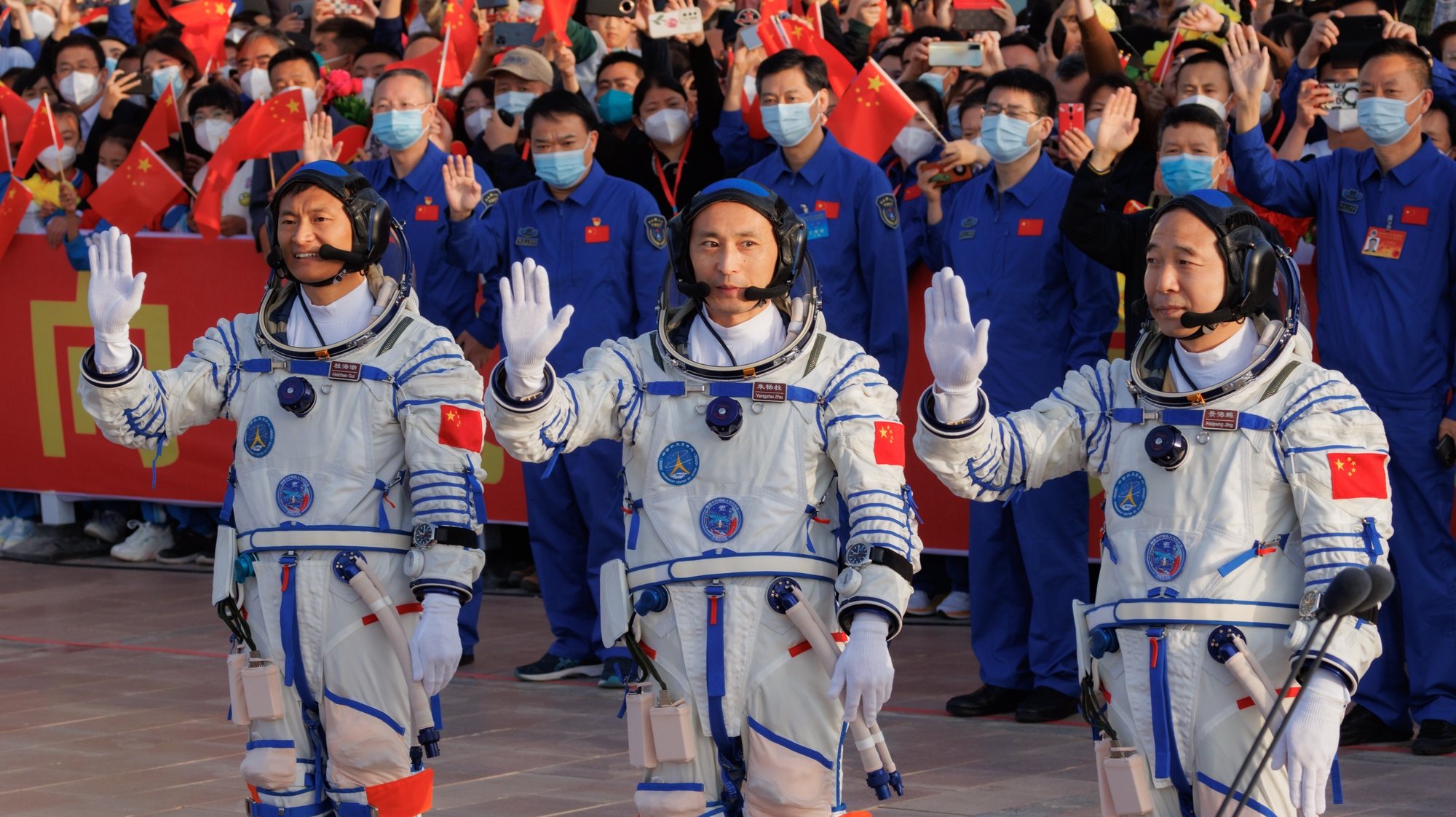China sent three new astronauts to its Tiangong space station Tuesday morning, including a civilian astronaut for the first time, seeking to strengthen its position against the United States and Russia.
EITHER trio of astronauts set off on board a rocket shortly after 9:30 a.m. local time (1:30 a.m. Lisbon time) from the Jiuquan launch center in the northwestern Gobi desert, according to the Chinese space agency responsible for space flights. manned (CMSA).
The trip is part of the strategy of send a chinese astronaut to the moon by 2030one of the main objectives of a space program in which the country has already invested billions of euros.
The mission commander, veteran Jing Haipeng (56), is making his fourth space flight and is accompanied by engineer Zhu Yangzhu, and Gui Haichao, a professor and the first Chinese civilian in space, both 36 years old.
A specialist in science and space engineering, Haichao will be in charge of the experiments at the station and does not come from the Armed Forces, as has always been the case up to now.
Representatives of the Chinese space program assured this Monday that the change in requirements is due to “to the new phase which the Tiangong space station entered, during which it will host a large number of scientific experiments.”
The station will house research on plant cultivation, fish farming, testing the behavior of fluids in zero gravity, and studying animal and plant cells, as well as the installation of the most accurate atomic clock ever created.
The three astronauts are the first to arrive at Tiangong, where they will spend their next five monthsafter the completion of the construction of the Chinese space station, at the end of 2022.
CMSA deputy director Lin Xiqiang said on Monday that the country “expects and welcomes” the participation of foreign astronauts in Chinese missions.
TO China currently has cooperation projects with the European Space Agency and the United Nations Office for Outer Space Affairs, which may increase as Tiangong will soon become the only operational space station.
In 2019, the country landed a spacecraft on the far side of the Moon, becoming the world’s first nation to do so, and in 2020 it brought back lunar samples and completed Beidou, its satellite navigation system.
In 2021, China landed a small robot on Marsand the next step is to guarantee the launch of two manned space missions a year, according to the CMSA.
The next one will be Shenzhou-17, which is scheduled for launch in October.
The country still wants to launch the Tianwen-3 space mission in 2030, to collect and bring back to Earth soil samples from Mars, Portuguese scientist André Antunes, head of the astrobiology unit of the Laboratory of Astrobiology, told Lusa at the beginning of the month. State Reference for Lunar and Planetary Sciences from the Macao University of Science and Technology (MUST).
Source: Observadora
